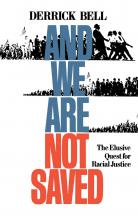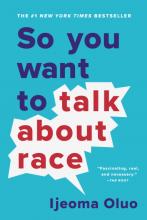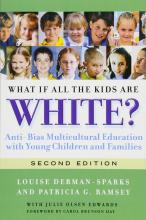Getting Started
These resources will help youth advocate researchers begin the process of dismantling systems of racism in their areas of youth study. This list was curated in conjunction with the 2021 Kessler-Freedheim Lecture presented by Dr. Dexter Voisin and presented as an extension of guiding questions and reflection points developed to move us towards critical systemic changes. We encourage researchers to identify the influence of historical power structures (Past), consider their own role within the research community (Present) and develop strategies to challenge and disrupt oppressive systems in their research (Future).
Deepen your understanding of anti-racist research principles with these resources:
- Articles and books that show how to do this work in practice
- Toolkits for self-reflection
- Definitions of antiracist key words for use in work
- Sample articles using critical frameworks and system integrations
This list is not exhaustive, but the resources will help you think critically about your work and the ways you can contribute to breaking down systems of oppression.
FRAMING QUESTIONS
KEY WORDS AND DEFINITIONS
PAST
Examples of Anti-Racist Youth Research
- Voisin, D.R. (2019). America the beautiful and violent: Black youth and Neighborhood Trauma in Chicago. Columbia University Press.
- Morris, M. (2016). Pushout: The criminalization of Black girls in Schools. New Press. (documentary film and book)
- Kendi, I.X. (2016). Stamped from the beginning: The definitive history of racist ideas in America. Hachette UK.
- Connor, D.J., Ferri, B.A. & Annamma, S.S. (2016). DisCrit: Disability Studies and Critical Race Theories in Education. Teachers College Press.
- History of Institutional Racism in U.S. Public Schools - The Edvocate
- Tate IV, W.F. (1997). Chapter 4: Critical race theory and education: History, theory and implications. Review of research in education, 22(1), 195-247.
Examples of Critical Frameworks that Challenge Historical Systemic Racism
- Voith, L.A., Hamler, T., Francis, M.W., Lee, H. & Korsch-Williams, A. (2020). Using a Trauma-Informed, Socially Just Research Framework with Marginalized Populations: Practices and Barriers to Implementation. Social Work Research, 44(3), 169-181.
- Powell, J.A. (2007). Structural Racism: Building upon the insights of John Calmore. NCL Rev., 86, 791.
- Taylor, E., Gillborn, D., & Ladson-Billings, G. (2009). Foundations of Critical Race Theory in Education.
Intersectional Approaches
- Annamma, S.A., Connor, D.J., & Ferri, B.A. (2016). A truncated genealogy of DisCrit. DisCrit: Disability studies and critical race theory in education, 1-8.
- Bell, D. (1987). And We Are Not Saved: The Elusive Quest for Racial Justice. New York: Basic Books.
- Bell, D. (1992). Faces at the Bottom of the Well: The Permanence of Racism. New York: Basic Books.
- Brayboy, B.M. (2005). Toward a tribal critical race theory in education. The Urban Review, 37 (5), 42-446.
- Delgado, R. (1992). The imperial scholar: reflections on a new review of civil rights literature, University of Pennsylvania Law Review, 132, 561-578.
- Delgado, R. (1992). The imperial scholar revisited: how to marginalize outside writing, ten years later, University of Pennsylvania Law Review, 140, 1249-1372.
- Delgado, R. & Stefancic, J. (2017). Critical race theory: an introduction (Third Edition). New York, New York University Press.
- Delgado Bernal, D. (2001). Living and learning pedagogies of the home: the mestiza consciousness of Chicana students, International Journal of Qualitiative Studies in Education, 14(5), 623-639.
- Delgado, Bernal, D. (2002). Critical race theory, LatCrit theory and critical raced-gendered epistemologies: recognizing Students of Color as holders and creators of knowledge, Qualitative Inquiry, 8(1), 105-126.
- Ladson-Billings, G. (2000). Racialized discourses and ethnic epistemologies. In N.K. Denzin & Y.S. Lincoln (Eds.), Handbook of qualitative research (2nd ed.). Thousand Oaks, CA, Sage, 257-277.
- Solozano, D. & Delgado Bernal, D. (2001) Examining Transformational resistance through a Critical Race and Theory Framework: Chicana and Chicano Students in an Urban Context, Urban Education, 36, 308-342.
- Watts, I.E. & Erevelles, N. (2004). These Deadly Times: Reconceptualizing School Violence by Using Critical Race Theory and Disability Studies. American Educational Research Journal, 41 (2), 271-299.
PRESENT
Resources for Self-Reflection
- Evans-Winters, V.E. & Hines, D.E. (2020). Unmasking white fragility: how whiteness and white student resistance impacts anti-racist education. Whiteness and Education, 5(1), 1-16.
- Flynn, J.E. (2015). White Fatigue: Naming the challenge in moving from an individual to a systemic understanding of racism. Multicultural Perspectives, 17(3), 115-124.
- Helms, J.E. (1994). The Conceptualization of Racial Identity and Other "Racial" Constructs. In E. J. Trickett, R.J. Watts & D. Birman (Eds.), The Jossey-Bass Social and Behavioral Science Series. Human diversity: Perspectives on people in context (p.285-211). Jossey-Bass/Wiley.
- Oluo, I. (2019). So You Want to Talk about Race. Hachette UK.
- Coates, T. (2015). Between the World and Me. Spiegel and Grau.
- Vaught, S.E. & Castagno, A.E. (2008). "I don't think I'm a racist": Critical Race Theory, teacher attitudes, and structural racism. Race, Ethnicity, and Education, 11, 95-113.
- Yoon, I.H. (2012). The paradoxical nature of whitness-at-work in the daily life of schools and teacher communities. Race, Ethnicity, and Education, 15, 587-613.
- Harvard University Project Implicit - Implicit Association Tests
- Mahzarin Banahi, M. & Greenwald, A. (2013). Blindspot: Hidden Biases of Good People. Delacorte Press.
Poisitionality Statement
- Milner IV, H.R. (2007). Race, Culture, and Researcher Positionality: Working Through Dangers Seen, Unseen, and Unforeseen. Educational researcher, 36(7), 388-400.
Ethics of Representation
- Thomas, V.G. (2009). Critical Race Theory: Ethics and Dimensions of Diversity in Research. In D.M. Mertens & P.E. Ginsberg (Eds.), The Handbook of Social Research Ethics, (pp. 54-68). Sage.
FUTURE
Data Framing Resources for Researchers
- Boston University Center for AntiRacist Research
- Gilbourn, D. Warmington, P. & Demack, S. (2017). QuantCrit: education, policy, 'Big Data' and principles for a critical race theory of statistics. Race, Ethnicity and Education.
- Helms, J.E., Jernigan, M., & Mascher, J. The meaning of race in psychology and how to change it: A methodological perspective. American Psychologist, Vol. 60(1), Jan 2005, 27-36.
- Zuberi, T. & Bonilla Silva, E. (2008). White Logic, White Methods: Racism and Methodology. Rowman and Littlefield.
Examples of Research Articles with policy, research, and practice implications
- Voisin, D.R. (2007). The effects of family and community violence exposure among youth: Recommendations for practice and policy. Journal of Social Work Education, 43(1), 51-66.
- Derman-Sparks, L. & Ramsey, P.G. (2011). What if all the kids are white? Anti-bias multicultural education with young children and families. Teachers College Press.
- Addressing Inequities in Education: Considerations for Black Children and Youth in the Era of COVID-19. Society for Research in Child Development.
- Addressing Race and Trauma in the Classroom. The National Child Traumatic Stress Network - Educator's Guide.
- Ohio School Board Resolution to Condemn Racism and Advance Equity
- Tatum, B.D. (1994). Teaching White students about racism: The search for White allies and the restoration of hope. Teachers College Record.
- Annamma, S., Morrison, D. & Jackson, D. (2014). Disproportionality fills in the gaps: Connections between achievement, discipline and special education in the school-to-prison pipeline. Berkeley Review of Education, 5(1).





